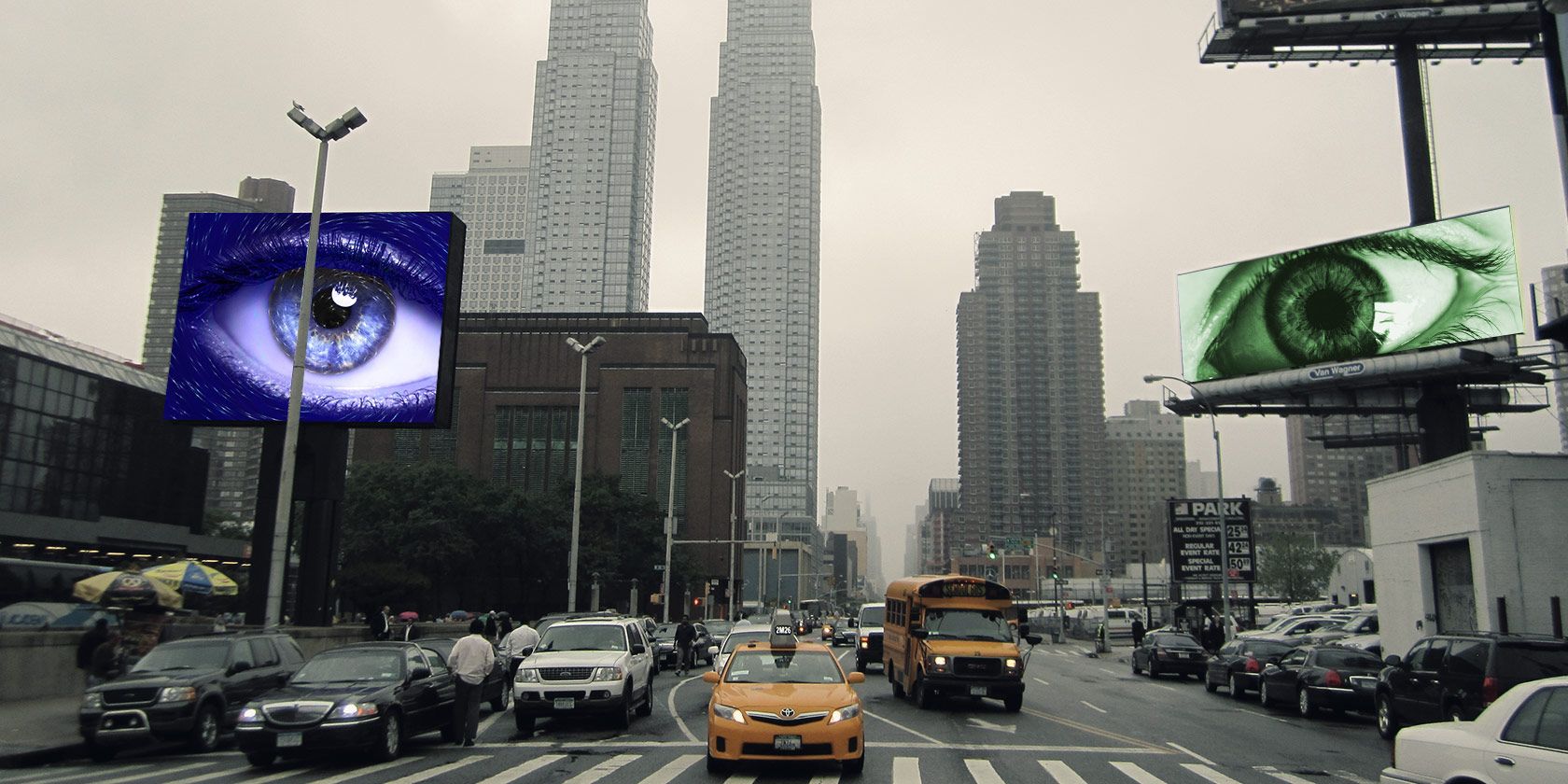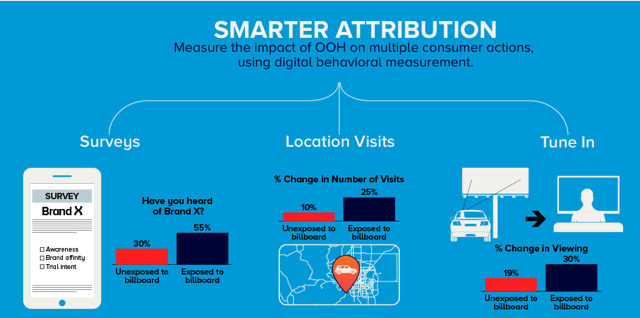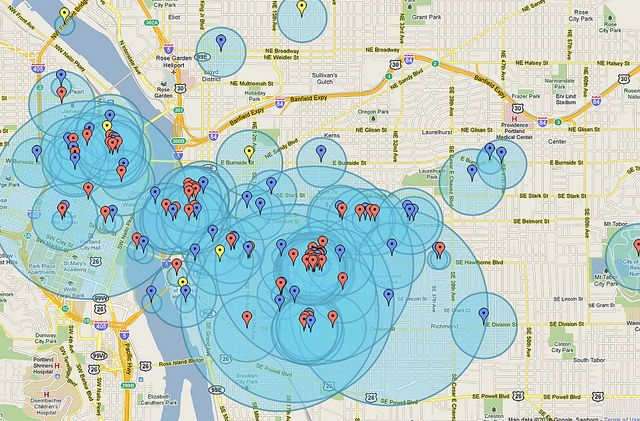If you read tech news, you're probably well aware that companies are collecting a huge amount of your data: your ISPs are probably monitoring your internet connection, advertisers are collecting and collating everything they can, social networks develop profiles for you even if you don't have an account, and all sorts of mobile metadata gets collected and analyzed by cell providers and the government.
But there's a new sort of collection that was rolled out recently, and it's a bit more unnerving than the methods you're probably used to. ClearChannel Outdoor is now helping advertisers track your movements on the street, whether you're walking, cycling, or driving. As long as you have your phone with you, ClearChannel knows where you go.
How are they doing this? Spy satellites? GPS trackers on your vehicles? Private detectives following you everywhere you go? The answer is a bit more mundane but worrying nonetheless: they're tracking you with their billboards.
What, Exactly, Is Going on Here?
The program sounds a little more sinister than it actually is, but there's no denying that it's a little disconcerting. Here's how ClearChannel describes the system, called RADAR:
https://www.anrdoezrs.net/links/7251228/type/dlg/sid/UUmuoUeUpU47811/https://vimeo.com/156622287
So, in short, billboards collect anonymized data that show detailed traffic and travel patterns; and because ClearChannel is one of the largest advertisers in the U.S., that means it has a lot of billboards to collect data from.
Sensors in the billboards detect your cell phone signal -- much like an iBeacon -- and track your phone as it moves through a city (the same is being done in malls, too). Then that data is anonymized and sold in large batches, so no one can identify you personally.
By connecting that information with data from other providers, ClearChannel can also tell advertisers how many billboards people are seeing, their exposure time to those advertisements, whether or not they visit the store being advertised, and how people behave online and in front of their TVs after seeing the billboards.
One of the most unnerving parts of this program is the audience segments that advertisers can specifically track. At the time of this writing, the following are available:
- Sports: NCAA, NFL, & NBA
- Finance
- Auto Intender
- Movie Buff
- Fashionista
- Electronics
- Moms
- QSR Visitor
- Home Improvement
These nine are bad enough, but ClearChannel says that it will be able to segment audiences into over 1800 groups in the very near future.
It's obvious why brands would be interested in this aggregation of information: by better placing billboards and understanding consumer behavior, they can figure out exactly which types of advertising are effective and where to pay for advertisements, so they can get the most out of their ad dollars.
Because this is a new program, ClearChannel isn't advertising its expected return-on-investment (at least publicly), but it seems like companies could get a fantastic value from the likely-considerable sum they'll pay to ClearChannel for this service.
Here's Where Things Get Scary
This might not seem like that big of a deal, but the whole situation gets more complicated when you take other companies into account. Much of the data that ClearChannel uses for this service is obtained from third-party organizations that collect and collate data about you.
That data, combined with the data from the RADAR program, paints a picture of you that you might not be comfortable having bought and sold.
Take, for example, Placed, one of the companies that works with ClearChannel. It specializes in tracking customers through stores, which means that pretty much every movement you make outside of your house could be tracked.
PlaceIQ is another partner that collects data from other apps to learn about consumer behavior. (If your apps asks for location permissions, it could be selling that information to PlaceIQ!)
Another company that hasn't (yet) partnered with ClearChannel on RADAR is Immersive Labs, which creates software that allows advertisements to analyze your facial features and display tailored ads based on your perceived gender and age (two things that are integrated into the RADAR program).
And with all of the smart home devices that are already spying on you, it seems likely that the things you do at home could be combined with your travels to create an even more complete advertising profile.
Although this and most other programs promise that they're not selling any personally identifying information, the degree to which that's true is debatable. By collating hundreds of pieces of information, it's not too hard for companies to figure out who you are if they really want to. You'll just have to trust that they don't.
The Future of Ads and Tracking
Of course, if you're a fan of targeted advertising, this whole situation might not seem too bad. Your data, combined with information collected from thousands of other people, will help companies to show you -- and others -- ads that might appeal to you (and, of course, use all the marketing tricks they know to get you to buy things you don't need).
And while privacy-conscious citizens and watch groups probably won't ever let it get to Minority Report-like personalized ads, you might be seeing custom advertising solutions in the very near future.
If you're familiar with cyberpunk movies, books, or video games, this is all probably sounding very familiar: large, faceless corporations tracking every move that citizens make, monetizing absolutely everything under their power, lack of governmental oversight, and so on.
Because the innovations in advertising-related data collection aren't often made widely known, it's hard to say what will come next, but we'd love to hear what you think is on the way.
What will be next in the world of advertising-related data collection? Individualized ads for everyone? Or will people start to get angry about these types of things and coordinate a major backlash? How do you feel about having your movements monitored by the ClearChannel billboards?
Share your thoughts and predictions with us in the comments below!
Image Credit: Aaron Parecki via flickr



